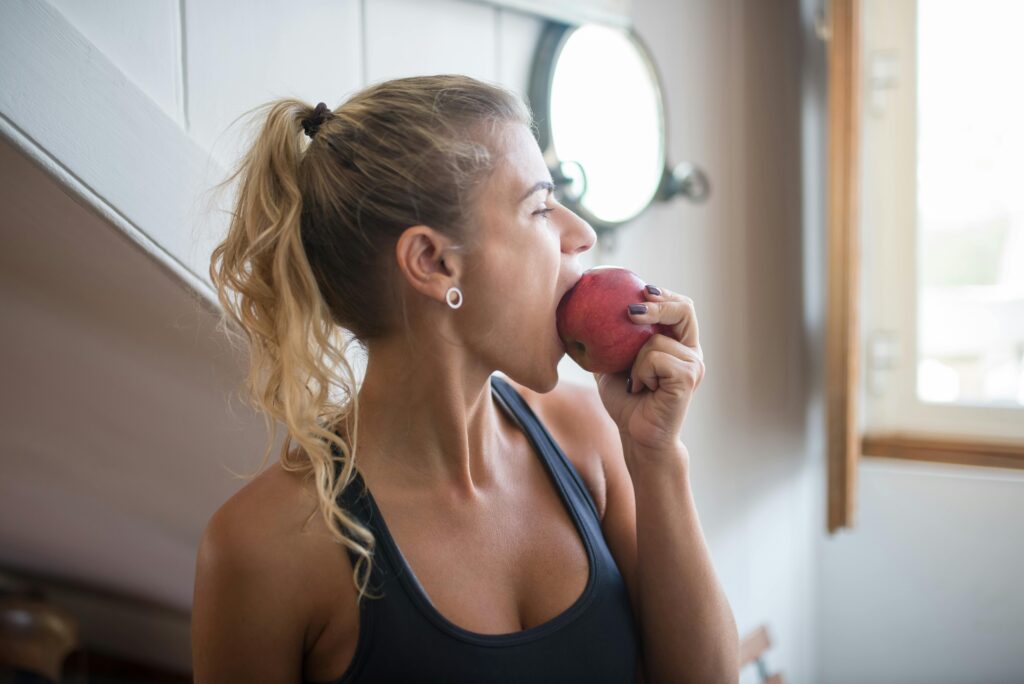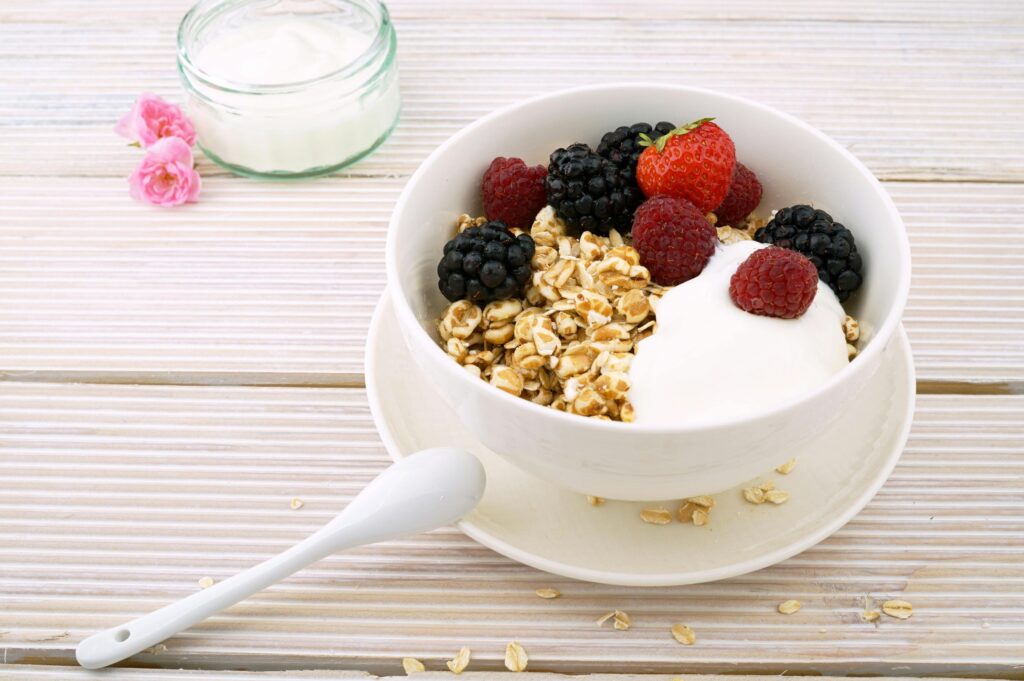Understanding the role of nutrition in enhancing your fitness routine is essential for anyone serious about improving their health and performance. Nutrition provides the fuel needed to power through workouts and aids in the repair and growth of muscles post-exercise. A well-balanced diet can enhance your physical capabilities and help you achieve your fitness goals faster. On the other hand, poor eating habits can hinder your progress and increase the risk of injuries. This article will explore the importance of macronutrients and micronutrients, optimal pre- and post-workout nutrition, the significance of hydration, and how to maintain a balanced diet. By the end, you will have a comprehensive understanding of fueling your body for optimal performance and sustained energy. Let’s delve into the key components that make nutrition a cornerstone of any effective fitness regimen.
- Role of Nutrition in Enhancing Your Fitness Routine: Understanding the Basics
- Pre-Workout Nutrition: Fueling Your Body for Success
- Post-Workout Nutrition: Recovery and Muscle Building
- Balanced Diet: A Key to Consistent Performance
- Hydration: The Unsung Hero of Fitness
- The Role of Supplements: Enhancing Your Nutrition
- Foods to Boost Your Energy Levels
- Conclusion
Role of Nutrition in Enhancing Your Fitness Routine: Understanding the Basics
Understanding the basics of macronutrients and micronutrients is essential to optimizing your fitness routine. They are the building blocks of a healthy diet and directly impact your performance and recovery.
Macronutrients:
- Carbohydrates are the primary source of energy for workouts. Complex carbohydrates like whole grains, fruits, and vegetables offer sustained energy.
- Proteins are crucial for muscle repair and growth. Sources include lean meats, fish, beans, and dairy products.
- Fats are necessary for hormone production and energy. Healthy fats from nuts, seeds, avocados, and olive oil support overall health.
Micronutrients:
- Vitamins areessential for various bodily functions, including energy production and immune support. Key vitamins include A, C, D, and E. You can find them in fruits, vegetables, and dairy.
- Minerals are important for muscle function, bone health, and hydration. Vital minerals include calcium, magnesium, and potassium. The major sources are leafy greens, nuts, and dairy.

Pre-Workout Nutrition: Fueling Your Body for Success
A well-planned pre-workout meal enhances your exercise performance and prevents fatigue. The best foods to eat before a workout are easily digestible carbohydrates and proteins. Carbohydrates supply the primary energy source for your muscles during exercise, helping you maintain stamina and performance. Proteins, alternatively, support muscle repair and growth, preparing your body for post-workout recovery. Options like bananas, oatmeal, and Greek yogurt provide quick energy and support muscle function.
Eating 30 to 60 minutes before exercising can ensure your body has the necessary fuel without causing discomfort. A small snack, such as a slice of whole-grain bread with peanut butter or a smoothie, is ideal. Focusing on the proper nutrients and intake timing sets the stage for a successful workout and reaching your fitness goals.
Post-Workout Nutrition: Recovery and Muscle Building
Proper post-workout nutrition will accelerate your recovery and muscle-building. After a great workout, you should fuel with foods packed with protein and healthy fats. Options like grilled chicken, quinoa, eggs, and avocado are excellent choices. These foods help repair muscle tissue and replenish energy stores.
For the highest recovery benefits, the best time to consume a balanced post-workout meal is 30 to 60 minutes after exercise. We often refer to this period as the “anabolic window,” when your body is most efficient at utilizing nutrients to repair and build muscle.
Proteins, in this case, provide the amino acids necessary for muscle repair and growth, reducing soreness and enhancing recovery. Healthy fats like those found in nuts, seeds, and olive oil support overall health and hormone production. They are also indispensable for recovery and muscle synthesis.
Balanced Diet: A Key to Consistent Performance
A balanced diet is crucial for maintaining consistent performance in your fitness routine. The right combination of macronutrients and micronutrients provides the energy and nutrients your body needs to function optimally. Focus on incorporating diverse foods to ensure you get all the essential vitamins and minerals. A balanced diet includes lean proteins, whole grains, healthy fats, fruits, and vegetables. You must consume these foods appropriately to meet your energy and nutritional needs.
However, maintaining a balanced diet can be challenging, given all the details we must consider. Fortunately, following a meal plan made by professional nutritionists and trainers can simplify this process. A professionally designed meal plan ensures you receive the necessary nutrients to support your workouts and overall health. It is tailored to meet your needs, considering your fitness goals, dietary preferences, and health conditions. Above all, it helps you stay on track with your fitness goals without the guesswork of what to eat, making it easier to maintain consistency and achieve optimal results.
Hydration: The Unsung Hero of Fitness
Staying hydrated is crucial for achieving and maintaining peak fitness performance. Hydration helps regulate body temperature, keeps your joints working smoothly, and ensures the transport of essential nutrients throughout your body. Conversely, dehydration can cause fatigue, muscle cramps, and reduced performance.
How much water to drink daily varies depending on age, weight, activity level, and climate. Generally, you should drink at least eight 8-ounce glasses of water daily, often called the “8×8” rule. Athletes and those engaging in intense workouts may need more to compensate for fluid loss through sweat.
Hydrating foods and beverages also contribute to your daily fluid intake. Cucumbers, oranges, strawberries, and watermelon have high water content and can help keep you hydrated. Herbal teas, coconut water, and electrolyte-infused drinks are excellent for replenishing lost fluids and minerals.

The Role of Supplements: Enhancing Your Nutrition
Supplements can be a powerful addition to your fitness regimen, helping to fill nutritional gaps and enhance performance. Common fitness supplements include protein powders, creatine, branched-chain amino acids (BCAAs), and multivitamins. These can provide additional nutrients that might be missing from your diet.
However, carefully consider the benefits and threats of supplements. Benefits are improved muscle recovery, increased energy levels, and enhanced overall performance. Risks are related to over-reliance on supplements and possible side effects from excessive intake.
Supplements should complement a balanced diet, not replace it. For example, you can use protein powder post-workout to aid muscle repair, while multivitamins can ensure you get essential nutrients daily. Of course, always consult a healthcare provider before starting any supplement regimen.
Foods to Boost Your Energy Levels
The effective use of nutrition in enhancing your fitness routine involves incorporating specific foods into your diet. Here is a list of energy-boosting foods that can help you stay active and alert throughout the day.
- Bananas: Packed with carbohydrates, potassium, and vitamin B6, bananas provide a quick and sustained energy boost.
- Oatmeal: A great source of complex carbohydrates and fiber, oatmeal releases energy slowly, keeping you fueled longer.
- Almonds: Rich in healthy fats, protein, and magnesium, almonds help maintain energy levels and prevent fatigue.
- Sweet potatoes: Sweet potatoes are high in complex carbohydrates and fiber, provide a steady energy supply, and are rich in vitamins.
- Eggs: Contain high-quality protein and essential amino acids, supporting muscle repair and energy production.
Adding these energy-boosting options to your meals can improve your performance and maintain steady energy levels throughout the day.

Conclusion
The importance of nutrition in enhancing your fitness routine cannot be overstated. Proper nutrition fuels your workouts, aids recovery, and supports overall health. Also, focusing on a balanced diet, staying hydrated, and considering the right supplements will help you reach optimal performance. Start making nutritional changes today to boost your fitness and well-being. Make informed choices and see the difference in your energy levels and workout outcomes. Your fitness journey starts with the proper nutrition. Take action now and prioritize your diet for a healthier, more active lifestyle.








